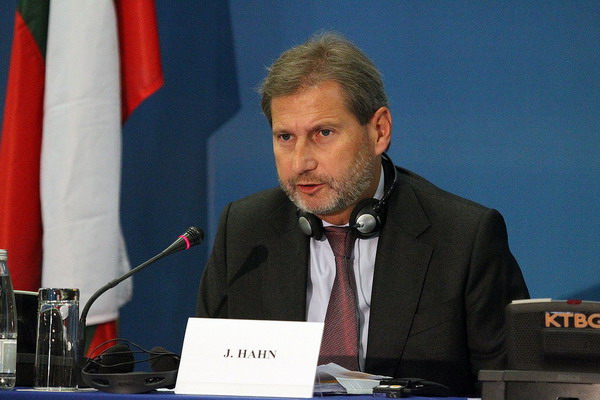The European Commission has adopted a series of cross-border cooperation programmes totalling €1 billion, supporting social and economic development in the regions on both sides of the EU’s external borders.
The European Commission has adopted a series of cross-border cooperation programmes totalling €1 billion, supporting social and economic development in the regions on both sides of the EU’s external borders.
“Cross-border cooperation plays a key role in avoiding the creation of new dividing lines. This new funding will further contribute to a more integrated and sustainable regional development in the neighbouring border regions and to a more harmonious territorial cooperation on EU’s external borders.” said Commissioner for European Neighbourhood Policy and Enlargement Negotiations Johannes Hahn.
“I am very glad that the European Regional Development Fund can contribute to bringing the EU and its neighbours closer together. Cross border cooperation programmes are concrete examples of how the EU is working to help citizens address common challenges, hence creating a real sense of solidarity, while boosting the competitiveness of local economies.” said Commissioner for Regional Policy Corina Crețu.
Read also
This type of cross border cooperation is an important element of the EU policy towards its neighbours. It will prioritise projects supporting sustainable development along the EU’s external borders, thus reducing differences in living standards and addressing common challenges across these borders. For each of the programmes, the participating countries have selected up to four priorities, such as SME development, culture, environment and climate change, fight against poverty, education and research, energy, accessibility, border management.
The new package will finance projects in 27 countries: Armenia, Georgia, the Republic of Moldova, Ukraine and Russia in the east; Egypt, Israel, Jordan, Lebanon, Palestine, Tunisia; EU Member States (Bulgaria, Cyprus, Estonia, Finland, France, Greece, Italy, Latvia, Lithuania, Malta, Poland, Portugal, Romania, Sweden) as well as Norway and Turkey. The funding comes under the European Regional Development Fund (ERDF) and the European Neighbourhood Instrument (ENI). Financing agreements will be finalised between the partner countries and the EU by the end of 2016. Grants will be awarded through calls for proposals expected to be launched in the course of 2016 or early 2017.
Brussels, 7 January 2016






















































